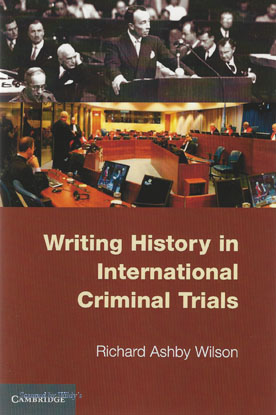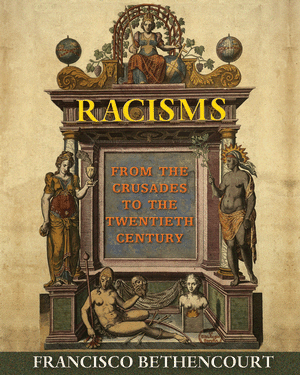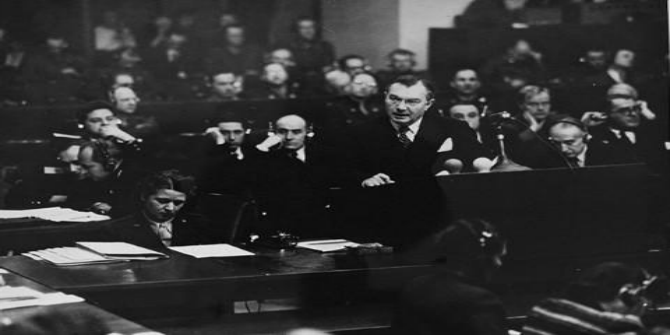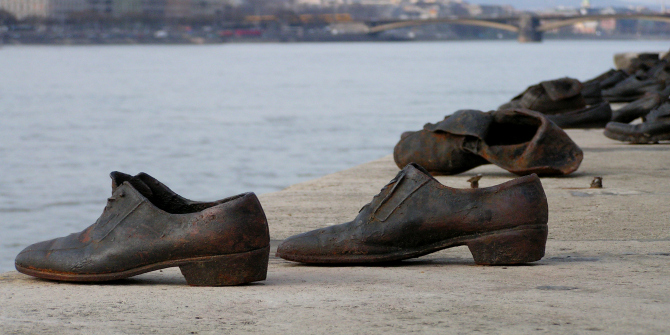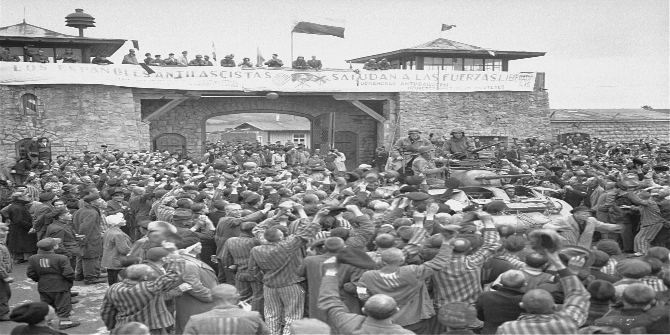27th January 2015 sees international commemorations marking 70 years since prisoners were freed from Auschwitz. Here we bring together a selection of book reviews covering identity and community, international criminal trials, and academic learning under Nazi rule, to mark Holocaust Memorial Day.
The Holocaust and Genocides in Europe by Benjamin Lieberman
Focusing on the major cases of genocide in twentieth-century Europe, including the Armenian genocide, the Holocaust and genocide in the former Yugoslavia, as well as mass killing in the Soviet Union, this book outlines the internal and external roots of genocide. Using the voices of the human actors in genocide, often ignored or forgotten, this volume aims to provide arresting new insights into the discussion of genocide in other continents and historical periods. Caroline Varin would have liked to see more content suitable for advanced readers and students, but would recommend this book to readers looking for a quick overview of the subject of genocides in Europe. Read the full review.
The Nuremberg Military Tribunals and the Origins of International Criminal Law by Kevin Jon Heller
This book seeks to provide the first comprehensive legal analysis of the twelve war crimes trials held in the American zone of occupation between 1946 and 1949, collectively known as the Nuremberg Military Tribunals. The judgements the NMTs produced have played a critical role in the development of international criminal law, particularly in terms of how courts currently understand war crimes, crimes against humanity, and the crime of aggression. Kevin Jon Heller provides a wealth of detail and a valuable starting-point for further thought and research, concludes Tara O’Leary. Read the full review.
Ancestors and Relatives: Genealogy, Identity and Community by Eviatar Zerubavel
In this provocative book on the sociology of ancestry, Eviatar Zerubavel re-examines our notions of relatedness, family, race and nationhood. Turi King finds it to be engaging and thoroughly enjoyable book, perfectly timed against the surge in interest in tracing family history. Read the full review.
Hitler’s Philosophers by Yvonne Sherratt 
Hitler had a dream to rule the world, not only with the gun but also with his mind. He saw himself as a ‘philosopher-leader’, and astonishingly gained the support of many intellectuals of his time. In this book, Yvonne Sherratt explores Hitler’s relationship with philosophers through investigation of international archives. Ignas Kalpokas finds that the book is relevant as a historical account of a troubled period, but the core message of the book seems to be underdeveloped. Read the full review.
Age of Entanglement: German and Indian Intellectuals across Empire by Kris Manjapara
In this book, Kris Manjapara sets out to explore patterns of connection linking German and Indian intellectuals from the nineteenth century to the years after the Second World War. The author attempts to trace the intersecting ideas and careers of a diverse collection of individuals from South Asia and Central Europe who shared ideas, formed networks, and studied one another’s worlds. Ankit Kumar recommends this book to those studying world history, geopolitics, postcolonialism and development. Read the full review.
 The Gestapo: Power and Terror in the Third Reich by Carsten Dams and Michael Stolle
The Gestapo: Power and Terror in the Third Reich by Carsten Dams and Michael Stolle
The Gestapo aims to trace the story of the Nazis’ secret police force, mostly remembered as the infamous epitome of Nazi terror and oppression. Tracing the history of the organization from its origins in the Weimar Republic, through the crimes of the Nazi period, to the fate of former Gestapo officers after World War II, Carsten Dams and Michael Stolle question the myths that have long surrounded the Gestapo. This serves as a cautionary tale about the extremes of preventative policing and the role of intelligence in today’s troubled world, writes Lauren Young. Read the full review.
Writing History in International Criminal Trials by Richard Ashby Wilson
In this engaging and accessible book, Richard Ashby Wilson addresses key questions related to the legal relevance of history in international criminal trials. Should history play a role in trials, what form should it take, and why does it matter? What can history explain about criminal accountability, crimes under international law, and conflict? Reviewed by Tara O’Leary. Read the full review.
Racisms: From the Crusades to the Twentieth Century by Francisco Bethencourt
Racisms is an interdisciplinary work that aims to provide a comprehensive history of racism from the Crusades to the twentieth century, and analyse how practices of discrimination and segregation were defended. Francisco Bethencourt sets out to demonstrate that there is not one continuous tradition of racism in the West, and shows that racism preceded any theories of race and must be viewed within the prism and context of social hierarchies and local conditions. Mahon Murphy finds this an admirable book that traces and explains the development of social practices that exclude targeted groups and the accompanying racial theories. Read the full review.





